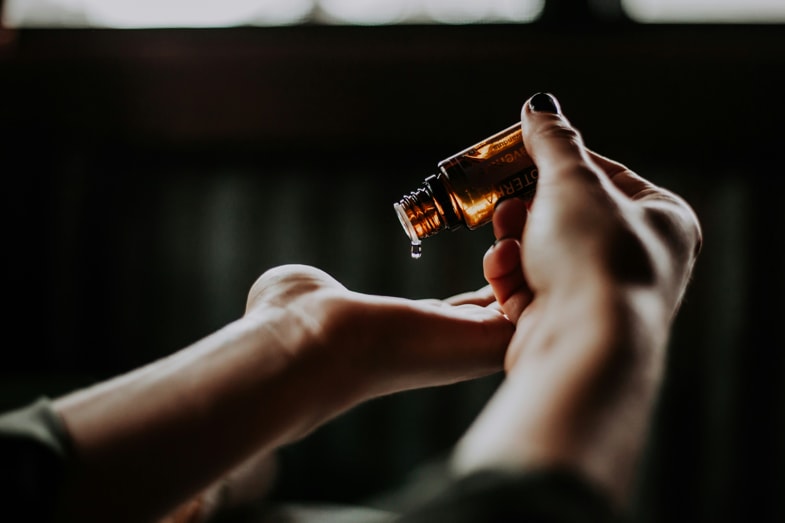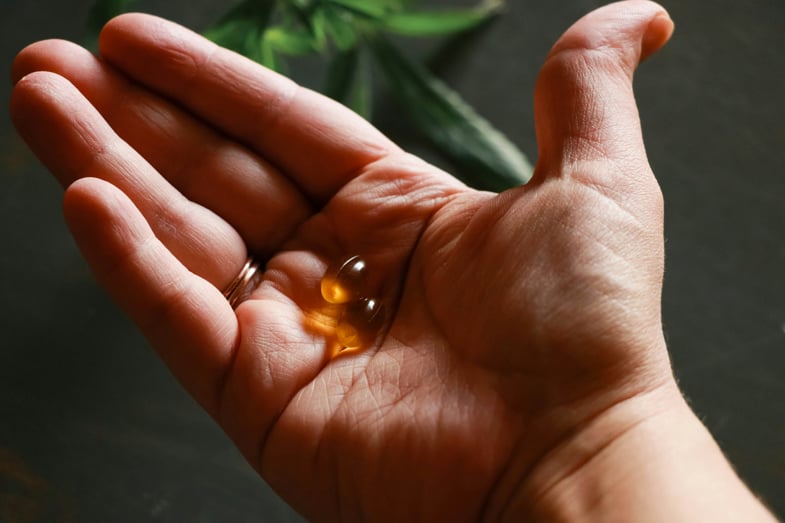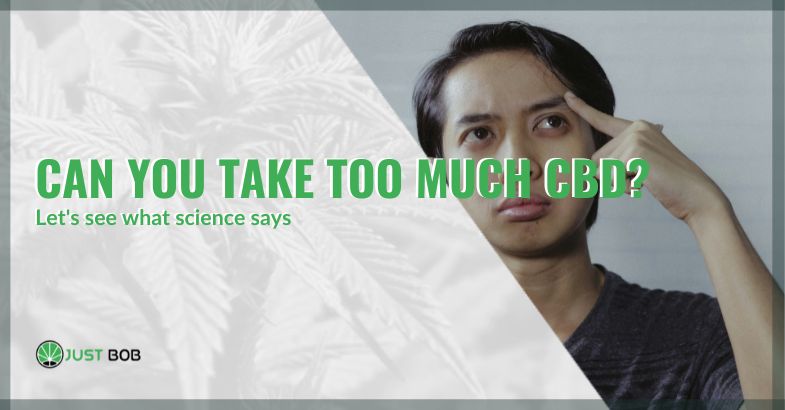Modified on: 29/04/2024
The Comprehensive Guide to CBD Overconsumption and Its Effects
In recent years, cannabidiol, better known as CBD, has surged in popularity, emerging as a widely used supplement for various health and wellness purposes. Its appeal lies in the promise of health benefits without the psychoactive effects associated with its cousin, THC. However, as with any supplement, questions and concerns regarding its usage, particularly about the possibility of taking too much, are prevalent.
This article seeks to provide a comprehensive exploration of the subject, delving into the safety, potential side effects, and responsible usage of CBD.
It is paramount to begin by acknowledging the complexity and evolving nature of the research surrounding CBD.
While it is celebrated for its potential therapeutic effects, ranging from alleviation of anxiety and pain to improvement of sleep quality, the scientific community is still unraveling the full spectrum of its implications. In this context, the query, “Can you take too much CBD?” becomes not just a matter of public interest, but also one of scientific inquiry.
Our discussion will be rooted in evidence-based information and expert opinions, providing a balanced and nuanced perspective.
The article will also touch upon the legal and regulatory landscape surrounding CBD, as this plays a crucial role in the accessibility and quality of CBD products available to consumers. Additionally, we will delve into practical advice for those considering or currently using CBD, focusing on dosage, quality of products, potential interactions with other medications, and the importance of consulting healthcare professionals.
Read also: Is cannabis a depressant? Here’s what researchers say
An Important Premise
Before we start with the article, we would like to remind the reader that laws regulating the consumption and purchase of CBD can vary widely from country to country and that, in many European states, the intake of cannabidiol is not permitted except for therapeutic purposes under medical supervision.
Therefore, in the following article we will particularly address those users who are in a country that freely allows not only the sale of CBD, but also its consumption.
CBD Safety and Toxicity
Cannabidiol, commonly known as CBD, has garnered significant attention and acclaim for its potential therapeutic benefits. This natural compound, extracted from the hemp plant, is often used in various forms such as CBD oil, edibles, and topical creams. In addition, it is naturally present in light cannabis flowers, also known as CBD buds.
Its popularity stems from its purported efficacy in addressing a range of conditions, including anxiety, pain, and sleep disturbances.
When examining the safety of CBD, it’s essential to refer to authoritative sources.
The World Health Organization (WHO) has played a pivotal role in assessing the safety profile of CBD. According to their findings, CBD is generally well-tolerated and considered safe for consumption. This is a noteworthy point, especially when juxtaposing CBD with other therapeutic agents where safety margins can be more restrictive.
Despite this reassuring assessment, the notion of CBD being entirely risk-free is a misconception.
While CBD is not toxic in the conventional sense – it does not cause fatal overdoses – it’s not devoid of side effects. Excessive intake of CBD can lead to certain adverse reactions.
The quality of CBD products is a critical factor in ensuring safety. The market is flooded with a plethora of CBD products, each varying in quality and potency. This variability necessitates consumers to be vigilant in their product choices.
To ensure a safe and positive experience with CBD, consumers should adopt a cautious approach. This involves starting with lower doses and observing the body’s response.
Let us elaborate in detail on each of the points we have briefly introduced in this section.


Understanding CBD Dosage
Navigating the world of CBD dosage can often feel like a balancing act, yet it is a crucial component in harnessing the full potential of this remarkable compound. CBD, or cannabidiol, varies in its impact from person to person, influenced by factors such as body weight, metabolism, and the specific condition being addressed.
The adage “start low and go slow” is particularly pertinent here.
For those new to CBD, beginning with a modest dose—often suggested around 5 to 10 milligrams per day—and gradually increasing it allows for a careful observation of the body’s response. This methodical approach not only minimizes the risk of unwanted side effects but also helps in identifying the ‘sweet spot’ dosage that provides optimal benefits.
It’s important to remember that more is not always better in the realm of CBD.
In essence, finding the right CBD dosage is a personalized journey, one that involves patience, attentiveness, and a willingness to adjust. By approaching this journey with an informed and cautious mindset, individuals can effectively harness CBD’s benefits while ensuring a safe and positive experience.
Potential Side Effects of Excessive CBD Consumption
While CBD is widely recognized for its safety and is often well-tolerated, it’s important to understand that consuming it in excessive amounts can lead to certain side effects. One of the most common side effects is drowsiness, which, while not harmful, could be inconvenient, especially during activities that require high levels of alertness.
Additionally, users might experience dry mouth. This side effect is generally manageable and can typically be alleviated by increasing water intake. However, it’s a reminder that staying hydrated is important when incorporating new supplements into your routine.
In some instances, individuals have reported mild lightheadedness after taking higher doses of CBD. This sensation is usually temporary and tends to resolve without intervention. Nausea or diarrhea are other potential side effects, particularly when CBD is consumed in larger quantities.
It’s crucial to emphasize that these side effects are generally mild and often diminish as the body becomes accustomed to CBD. This highlights the significance of beginning with a lower dose and gradually increasing it, while monitoring your body’s response.
Remember, while CBD is largely considered safe, the reaction to it can vary from person to person. What is effective and comfortable for one individual may not be the same for another. Therefore, consulting with a healthcare professional before starting any new supplement, including CBD, is always advisable, especially for individuals with existing health conditions or those on other medications.
Quality and Sourcing of CBD Products
In navigating the world of CBD, the quality and sourcing of the products you choose play a pivotal role. High-quality CBD products, derived from organically grown and safely processed hemp (the ones you find on Justbob have exactly these characteristics), provide the desired benefits without unwanted side effects.
It’s important to understand that not all CBD is created equal. Inferior products may be produced from hemp grown with synthetic fertilizers and pesticides, potentially leading to contamination that could harm your health. Moreover, the extraction process is crucial. Methods such as CO2 extraction are preferred for their ability to preserve the purity and potency of CBD, while avoiding harmful residues.
Another critical aspect is the THC content in CBD products.
Legally, CBD products should contain less than 0.3%, ensuring they don’t produce psychoactive effects. However, low-quality products might exceed this limit, inadvertently leading to undesired effects like anxiety or paranoia. Therefore, it’s essential to purchase from reputable sources. These providers will offer third-party lab test results, confirming the product’s composition and safety. This level of transparency is your assurance against the risks associated with impurities or inaccurate labeling.
In summary, when it comes to CBD, the adage ‘you get what you pay for’ often holds true. Investing in high-quality CBD from reliable sources not only optimizes the benefits but also safeguards your health. As a consumer, your vigilance in choosing the right product is paramount. Always check for organic certification, third-party testing, and clear labeling to make an informed decision.


Interactions with Medications
When considering the use of CBD, it’s crucial to recognize its potential interactions with certain medications. Just as we consult healthcare professionals before adding new supplements or making changes to our medication regimen, the same level of caution applies to CBD.
Particularly noteworthy are medications that carry a “grapefruit warning.” Both grapefruit and CBD can inhibit the enzyme cytochrome P450, which plays a vital role in metabolizing many pharmaceuticals. This inhibition can lead to higher concentrations of the medication in the bloodstream, potentially increasing the risk of adverse effects or reducing the drug’s effectiveness.
The range of medications affected by this interaction is broad, encompassing some blood thinners, cholesterol medications, and certain types of antidepressants, among others.
This does not mean that CBD is off-limits for individuals on these medications, but it underscores the importance of informed, cautious use.
Before starting CBD, it’s advisable to discuss it with your doctor, who can provide personalized advice based on your current medications and health history. They can also monitor for any potential interactions and adjust medication dosages if necessary.
In the dynamic landscape of health and wellness, staying informed and cautious is key.
CBD, while generally safe, is not a one-size-fits-all solution and should be approached with the same prudence as any other health supplement or medication. By engaging with healthcare professionals and making informed choices, we can safely explore the potential benefits of CBD within the unique context of our individual health needs.
Read also: Cannabis in the Bible: what does religion say about marijuana?
So, Can You Take too Much CBD?
To answer the question, “Is it possible to take ‘too much’ CBD?”: yes, you can take too much, but it’s not as dangerous as you might think.
CBD is generally safe, and major health organizations like the WHO say it’s not toxic. But, if you take a lot of it, you might feel some uncomfortable side effects. These aren’t usually serious, but they can be annoying. You might feel really sleepy, have an upset stomach, or notice changes in how hungry you feel or your mood.
The best way to avoid taking too much CBD is to start with a small amount. See how your body reacts, then slowly take more if you need to. Everyone’s body is different, so what works for one person might not work for another. It’s also super important to use good quality CBD. Some CBD products out there aren’t great, and they could make you feel worse.
So, in short, while taking too much CBD isn’t likely to be really dangerous, it can make you feel bad. The key is to use it carefully and pay attention to how your body responds.
Takeaways
- The scientific study of CBD is still developing, and while it’s known for potential therapeutic benefits like anxiety relief and improved sleep, the full spectrum of its effects and implications are yet to be completely understood. This ongoing research makes it crucial to stay informed and cautious.
- The World Health Organization (WHO) acknowledges that CBD is generally well-tolerated and safe, but it’s not without potential side effects, especially when consumed excessively. Hence, it’s misleading to consider CBD entirely risk-free.
- Proper CBD dosage is key and varies from person to person, influenced by factors like body weight and metabolism. The principle of starting with a low dose and gradually increasing it is essential to minimize side effects and identify the most effective dosage.
- The efficacy and safety of CBD heavily depend on its quality and sourcing. High-quality, organically grown hemp, and safe extraction processes are critical. Consumers should be wary of products with potentially harmful contaminants and incorrect labeling.
- CBD can interact with certain medications, particularly those with a “grapefruit warning,” due to its effect on the cytochrome P450 enzyme. It’s important to consult healthcare professionals before starting CBD, especially for individuals on other medications.
FAQ
Can you take too much CBD?
Yes, it is possible to take ‘too much’ CBD, but it’s not as dangerous as you might think. While CBD is generally safe and not toxic, excessive intake can lead to uncomfortable side effects like drowsiness, upset stomach, or changes in appetite and mood. The best approach is to start with a small amount and gradually increase it, paying close attention to how your body reacts.
What are the potential side effects of excessive CBD consumption?
Consuming CBD in excessive amounts can lead to side effects such as drowsiness, dry mouth, mild lightheadedness, nausea, or diarrhea. These effects are generally mild and often diminish as the body becomes accustomed to CBD. It’s important to start with a lower dose and gradually increase it while monitoring the body’s response.
How important is the quality and sourcing of CBD products?
The quality and sourcing of CBD products are crucial. High-quality CBD, derived from organically grown hemp and processed using safe methods, ensures benefits without unwanted side effects. Inferior products might contain contaminants or exceed the legal THC limit. Always check for organic certification, third-party testing, and clear labeling when choosing CBD products.









